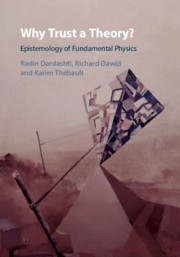Book contents
- Frontmatter
- Dedication
- Contents
- List of Contributors
- Preface
- 1 Introduction
- Part I Historical and Conceptual Background
- 2 Fundamental Theories and Epistemic Shifts: Can the History of Science Serve as a Guide?
- 3 Scientific Speculation: A Pragmatic Approach
- 4 Assessing Scientific Theories: The Bayesian Approach
- 5 Philosophy of Science and the String Wars: A View from the Outside
- Part II Theory Assessment beyond Empirical Confirmation
- Part III Cosmology and Testability
- Part IV Prospects for Confirmation in String Theory
- Index
2 - Fundamental Theories and Epistemic Shifts: Can the History of Science Serve as a Guide?
from Part I - Historical and Conceptual Background
Published online by Cambridge University Press: 06 March 2019
- Frontmatter
- Dedication
- Contents
- List of Contributors
- Preface
- 1 Introduction
- Part I Historical and Conceptual Background
- 2 Fundamental Theories and Epistemic Shifts: Can the History of Science Serve as a Guide?
- 3 Scientific Speculation: A Pragmatic Approach
- 4 Assessing Scientific Theories: The Bayesian Approach
- 5 Philosophy of Science and the String Wars: A View from the Outside
- Part II Theory Assessment beyond Empirical Confirmation
- Part III Cosmology and Testability
- Part IV Prospects for Confirmation in String Theory
- Index
Summary
Information
- Type
- Chapter
- Information
- Why Trust a Theory?Epistemology of Fundamental Physics, pp. 13 - 28Publisher: Cambridge University PressPrint publication year: 2019
Accessibility standard: Unknown
Why this information is here
This section outlines the accessibility features of this content - including support for screen readers, full keyboard navigation and high-contrast display options. This may not be relevant for you.Accessibility Information
- 1
- Cited by
